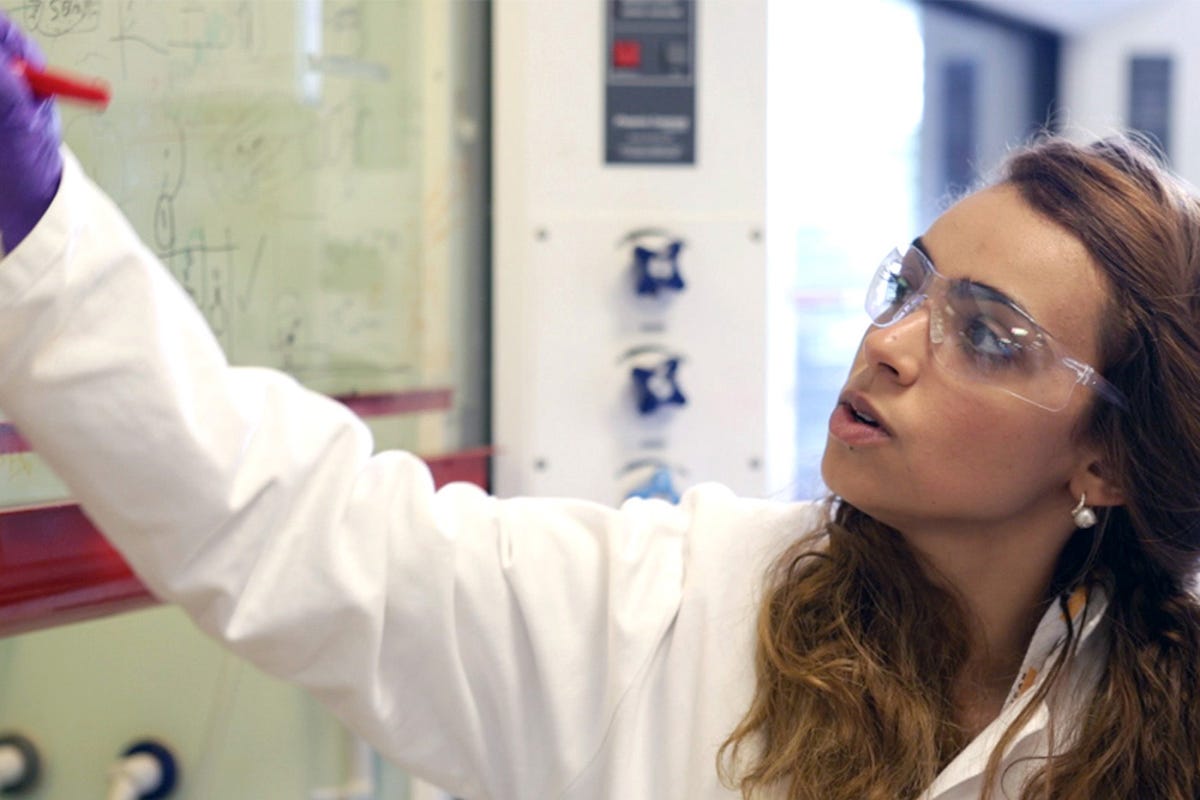Fellow Portrait
Enass Abo-Hamed
H2GO Power

Offers a safe method for hydrogen production and storage to provide clean mobile energy.
Europe
UNITED KINGDOM
Fellow
2015
Updated March 2015
Originally from Palestine, Enass Abo Hamed graduated in chemistry from the University of Cambridge, United Kingdom. Last year, Enass and four co-founders from different countries – Japan, China, the United Kingdom and the United States – came together to create H2GO, with the aim of making cleaner hydrogen energy more accessible to consumers.
Limited storage capacity
Lithium-ion batteries currently used in mobile devices, such as cell phones, computers and drones, have a limited energy storage capacity. “Since everyone is becoming more and more dependent on their mobile devices it’s a problem a lot of people share. 1.75 billion people around the world are relying on their mobile phones. When the battery runs out it always is a problem”, says Enass. Moreover the components of lithium-ion batteries are mined and difficult to recycle. “Current batteries which are mass-produced are harmful to the environment.”
There are few existing solutions around hydrogen technologies. People do realise hydrogen has got the potential to power up efficiently electronic devices.

5 to 10 times
“We want to improve the storage capacity of the battery multiple times to make it last a lot longer. According to our calculations, it could last between 5 to 10 times longer.”

Changing the mindset
When developing a new power technology, it takes time and persuasiveness to win acceptance from investors as well as the public. “It is going to be very slow to get the technology up and running to the performance standard, convincing more and more investors, users, customers to adapt to this technology.”
Providing clean power for portable devices
H2GO Power has developed safe hydrogen storage solutions to generate clean power for mobile devices. “We synthetized a sponge-like material that has the ability to produce hydrogen gas. The end product works like a sponge. It can soak up hydrogen and store it until we need to use it.” This technology is made of sustainable materials and the only by-product is water vapour. The company is at a prototype development stage and has proof of concept for the material.
Lithium-ion batteries have technological and scientific limitations to keep up with our increasing energy demands.


